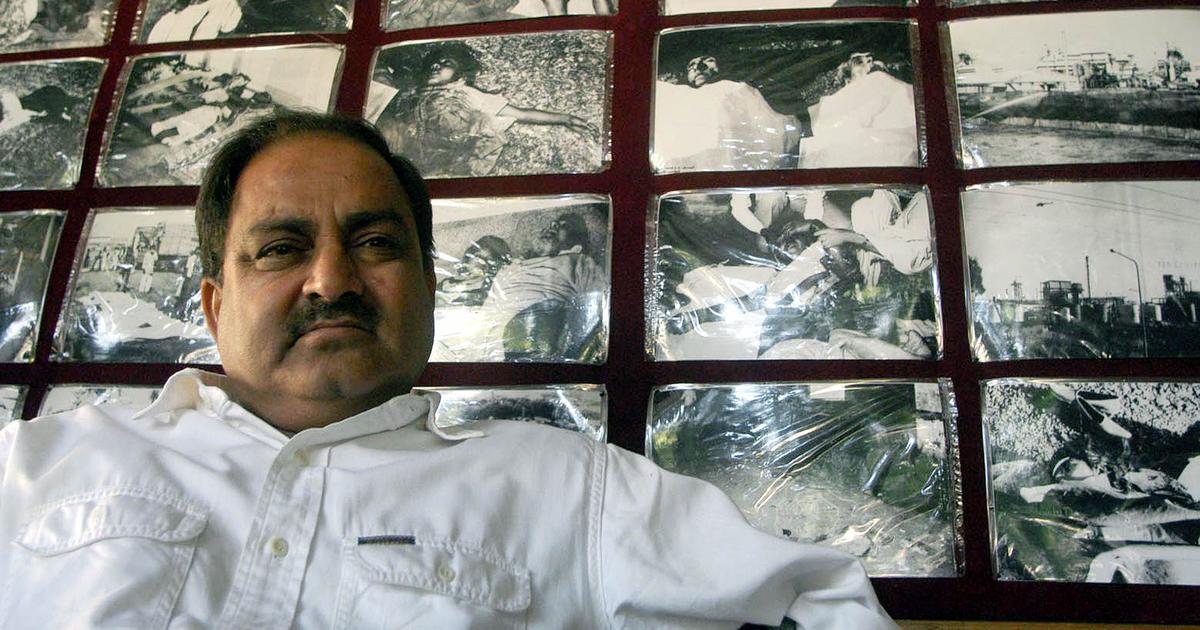Activist Abdul Jabbar, who fought for the victims and survivors of the 1984 Bhopal gas tragedy, passed away on Thursday night. Jabbar, 61, was suffering from lung disease and had lost 50 per cent of his eye vision due to the gas emission.
A leading activist, who organised several protests seeking compensation and employment for the gas tragedy victims’ kin and survivors, Jabbar had lost his mother, father and brother to the world’s worst industrial accident. He was the founder and convener of the Bhopal Gas Peedit Mahila Udyog Sangathan, an organisation that worked effortlessly for the cause of victims of the gas leak incident.
Former Chief Minister Digvijaya Singh had visited him in the hospital on Thursday and promised him treatment in Mumbai and later CM Kamal Nath too announced to bear his treatment cost but the senior activist passed away by evening.
In what is termed as the world’s worst industrial disaster, over 20,000 people were killed after methyl isocyanate leaked on the intervening night of December 2-3, 1984 from the pesticide plant of Union Carbide India Limited (UCIL) in Bhopal in Madhya Pradesh.
More than five lakh people were affected due to the toxic leak.
Union Carbide CEO Warren Anderson, a US citizen, had escaped shortly after the tragedy and never appeared before a court for trial in the case. He died in the United States in 2013.
Jabbar took up the fight against Union Carbide in the courts for adequate compensation for around 5 lakh victims and 25,000 who died (as per official records). In his lifetime, he imparted vocational training to around 5,000 survivor women so that they could earn a livelihood for their families.
Related












































